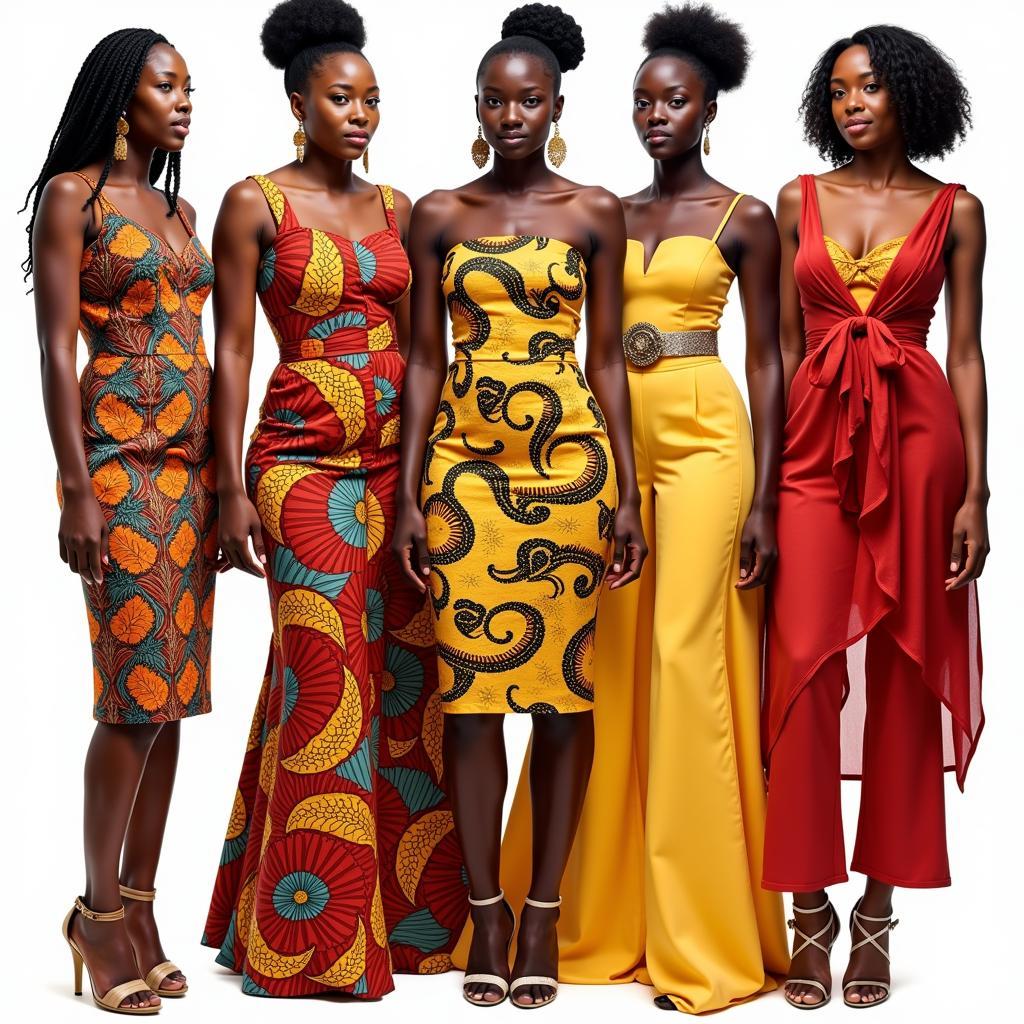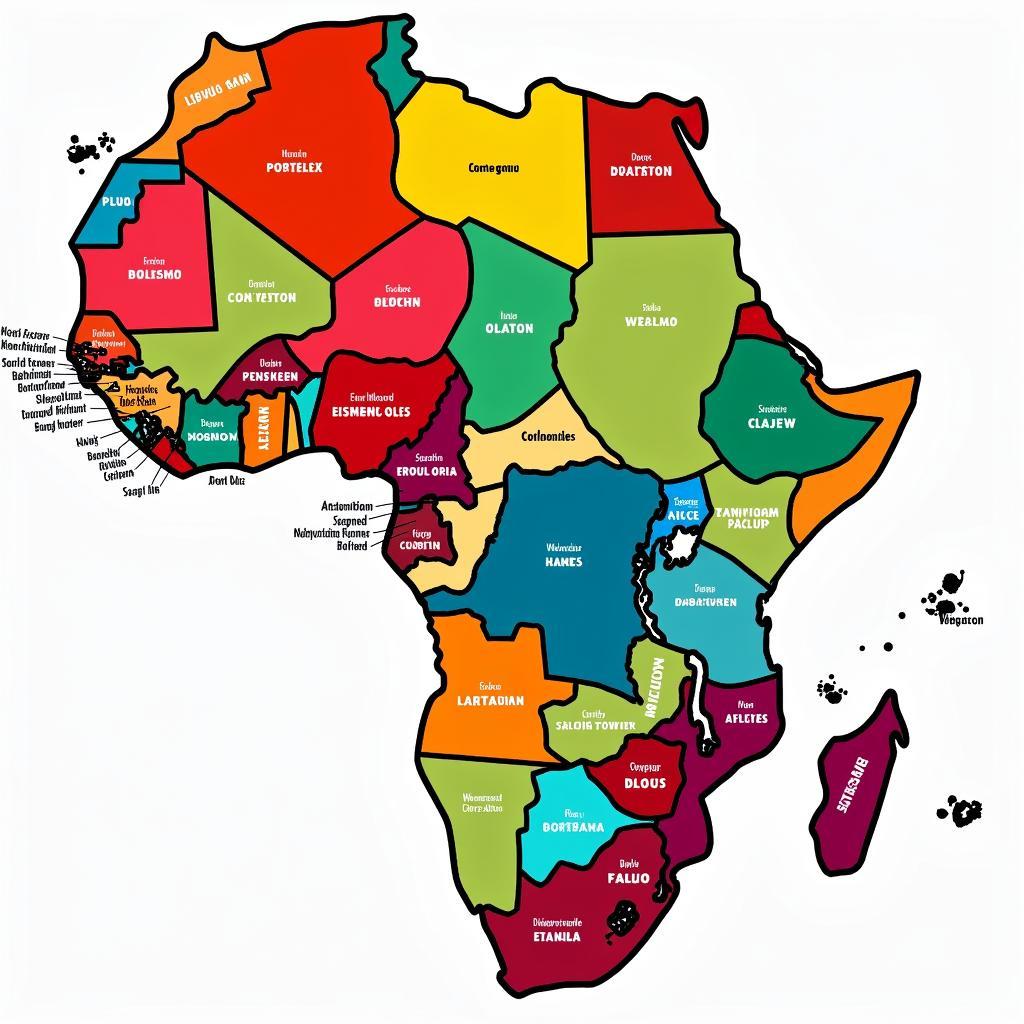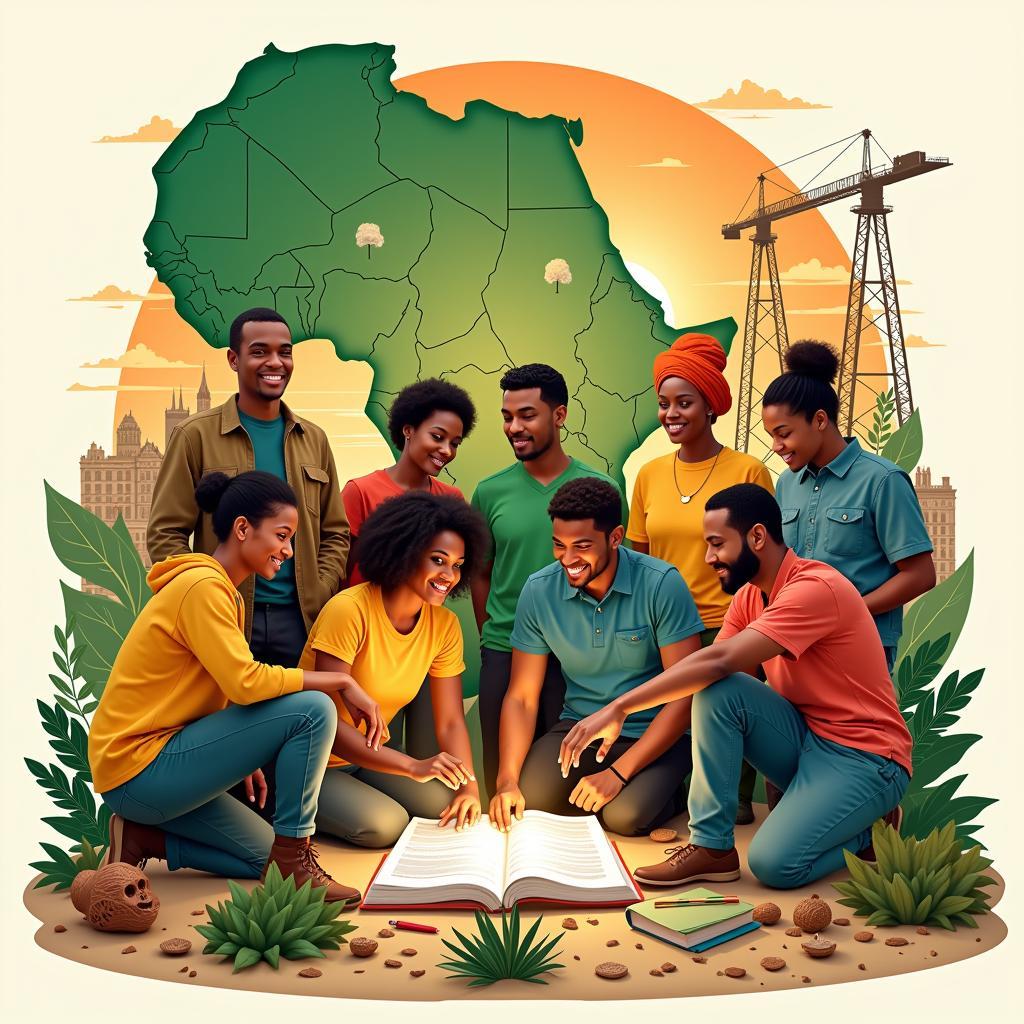African Celebrations and Traditions: A Journey Through Cultural Diversity
Africa is a continent rich in diverse cultures and traditions, each with its unique way of celebrating life’s milestones, expressing joy, and honoring ancestors. From vibrant festivals to elaborate ceremonies, these celebrations reflect the continent’s rich history, beliefs, and values. This article will delve into the captivating world of African Celebrations And Traditions, exploring their significance, rituals, and the impact they have on the lives of people across the continent.
The Importance of Celebrations and Traditions in African Culture
Celebrations and traditions play a central role in African culture, providing a platform for community bonding, cultural preservation, and spiritual connection. These gatherings offer opportunities for families, friends, and communities to come together, share stories, and reinforce their shared heritage.
“African celebrations are more than just events; they are expressions of our very essence,” explains Dr. Abena Mensah, an anthropologist specializing in African cultural studies. “These traditions connect us to our past, guide our present, and shape our future.”
From Birth to Beyond: Life Cycle Celebrations
Across Africa, life cycle celebrations mark significant stages in a person’s journey, from birth to death.
- Naming Ceremonies: These ceremonies, often held a few days after birth, involve choosing a name that reflects the child’s lineage, hopes, and aspirations. They are a time for family and friends to gather and shower the newborn with blessings.
- Coming of Age Ceremonies: These celebrations mark the transition from childhood to adulthood and vary depending on the specific community. For example, the Maasai in East Africa have elaborate ceremonies where young men undergo rigorous trials to prove their strength and readiness for manhood.
- Marriage Ceremonies: Weddings in Africa are often elaborate affairs, involving traditional rituals, music, and dance. The ceremonies symbolize the union of two families and the promise of a shared future.
- Funerals and Ancestor Veneration: Funerals are solemn occasions, reflecting the importance of family and community ties. In many cultures, ancestor veneration is central, with rituals designed to honor the deceased and ensure their spirits remain connected to the living.
A Tapestry of Festivals: Celebrating Life and Nature
African celebrations extend beyond life cycle events, embracing a wide array of festivals that celebrate nature, harvests, and cultural heritage.
- Harvest Festivals: These festivals are held across the continent to express gratitude for bountiful harvests and to celebrate the bounty of the land.
- Cultural Festivals: These festivals showcase traditional music, dance, storytelling, and crafts. They are opportunities to preserve cultural traditions and connect younger generations to their heritage.
- Religious Festivals: Africa’s diverse religious traditions are reflected in numerous festivals, each with its unique rituals and beliefs.
The Power of Music and Dance in African Celebrations
Music and dance are integral to African celebrations, serving as vehicles for expressing joy, sorrow, and everything in between. They create a vibrant atmosphere and bind communities together.
- Traditional Instruments: Each region has its unique instruments, from the kora and ngoni in West Africa to the mbira in Zimbabwe and the drums found across the continent.
- Dance Styles: African dance is known for its energetic movements, intricate footwork, and expressive gestures, often reflecting the rhythm and spirit of the music.
Preserving Traditions: The Importance of Continuity
In a rapidly changing world, it’s essential to preserve African traditions. These celebrations provide a sense of belonging and identity, reminding us of our rich cultural heritage.
- Modern Adaptations: While some traditions remain unchanged, others have evolved to reflect modern times.
- Youth Engagement: It’s crucial to involve younger generations in these celebrations, ensuring they understand and appreciate the traditions that shape their heritage.
A Window into the Soul of Africa
African celebrations and traditions are a window into the soul of the continent, offering insights into the beliefs, values, and cultural diversity that have shaped the African experience. By exploring these celebrations, we gain a deeper understanding of Africa’s rich history, its vibrant present, and its enduring legacy.
From the Vibrant Colors to the Meaningful Rituals
“When you witness an African celebration, you see the embodiment of joy, resilience, and the enduring spirit of our people,” shares Mamadou Diallo, a cultural activist and storyteller. “These celebrations are not just about having fun; they are about remembering where we come from and connecting to something larger than ourselves.”
FAQs
1. What are some of the most popular African festivals?
Some of the most popular African festivals include the Maasai Mara Festival in Kenya, the Soweto Gospel Choir Festival in South Africa, the Timbuktu Festival of the Desert in Mali, and the Osun-Osogbo Festival in Nigeria.
2. How are African traditions changing in modern times?
Modernization, urbanization, and globalization are influencing African traditions. While some traditions remain unchanged, others have evolved to incorporate modern elements.
3. What is the role of storytelling in African culture?
Storytelling is a powerful tool for transmitting cultural knowledge, values, and history across generations.
4. How can I learn more about African celebrations and traditions?
You can learn more by visiting cultural centers, museums, and websites dedicated to African culture. You can also attend festivals and events to experience the vibrant celebrations firsthand.
5. How can I support the preservation of African traditions?
You can support the preservation of African traditions by attending festivals, learning about different cultures, and sharing your knowledge with others. You can also support organizations dedicated to cultural preservation.
Explore More of Africa’s Cultural Tapestry
This article is just a glimpse into the vast and diverse world of African celebrations and traditions. To learn more, explore our website for articles on specific cultural events, traditional practices, and the stories of people who keep these traditions alive.




